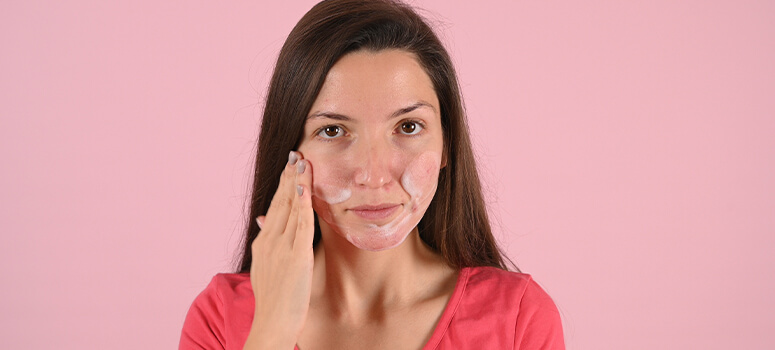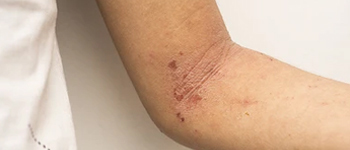In our daily, fast-paced lives, we often miss the signs where our body tells us something is wrong. Believing an itch to be a simple rash or common allergy, we tend to ignore it. However, there is more to eczema than what meets the eye. Eczema is one such disease that needs to be caught early on. Please keep reading to know what causes eczema, its symptoms, various types, and, more importantly, how to treat eczema.
What is Eczema?
Atopic dermatitis, commonly called eczema, is a chronic disease that causes skin inflammation, rendering the skin itchy and irritated. It is not a simple rash, and the condition could worsen if not correctly tended to. It is commonly associated with adults, though children may also suffer from it. The severity of the condition differs from person to person.
Different Types of Eczema
Eczema can erupt in different forms with varying degrees of impact. Let us take a look at some of them:
-
-
Contact Dermatitis
-
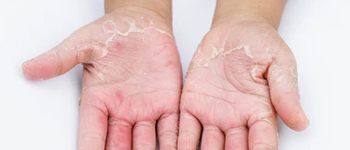
-
-
Nummular Dermatitis
-
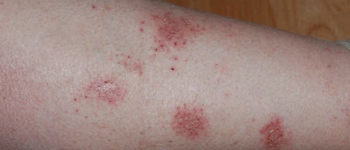
-
-
Dyshidrotic Eczema
-
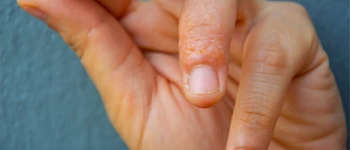
-
-
Hand Eczema
-
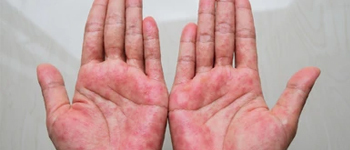
-
-
Stasis Dermatitis
-
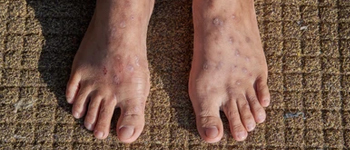
-
-
Atopic Dermatitis
-
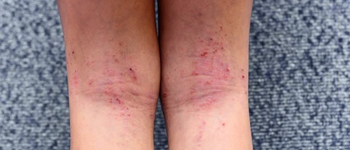
Symptoms of Atopic Eczema:
- Rashes in the creases of elbows and knees, causing the affected area to get thicker or change its complexion. The skin may harden and become leather-like to battle against infections.
- Appearance of small bumps filled with fluid.
- Rash on scalp and cheeks (predominant in babies and children).
- Infection of skin when scratched.
Atopic Dermatitis is not contagious. How long eczema lasts depends upon the underlying cause and one’s proclivity to the condition. Normal eczema can last for a few weeks, while chronic eczema lasts for a lifetime with occasional flare-ups. Allergic triggers may result in longer-lasting flares.
Causes of Atopic Dermatitis –

- Exposure to irritants such as smoke, soaps, air pollutants, pet hair, dust and dust mites.
- Alterations in genes.
- Problems with the immune system that lead the skin to become inflamed.
- Climate and stress also play a role in exacerbating the condition.
Eczema Treatment
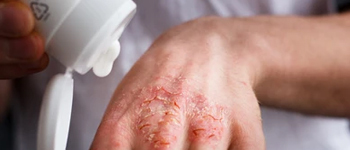
- Location of the rash and the severity of the itching.
- Irritants that trigger the rash.
- Response to treatments to find out what works best for patient.
Treatments generally are a combination of things and may include:
- Medicines prescribed by the doctor.
- Skincare routine like applying creams and moisturisers within a few minutes of bathing.
- Phototherapy using ultraviolet A or B light waves.
Additional topical or oral antibiotic treatments might be recommended by the doctor if an infection is noticed.
Common Irritants That Cause Eczema Flare-Ups
-
- Skin irritants:

-
- Types of food:

-
- House dust mites:
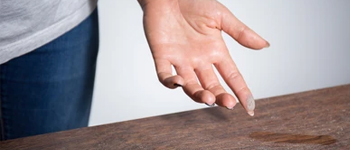
Conclusion
There is no cure for atopic eczema. By learning about the triggers and taking good care of the skin, one can reduce the frequency and severity of AD flare-ups. The right treatment will help manage the symptoms capably. The effects of eczema are often linked with depression and anxiety as many people feel embarrassed and self-conscious about their skin. In such a case, seeking professional help from a dermatologist will yield the best results. Treatments for eczema are not one-size-fits-all. It is best to consult an expert dermatologist at the earliest and get the appropriate treatment.

